The Turkish-Armenian border gate - analysis
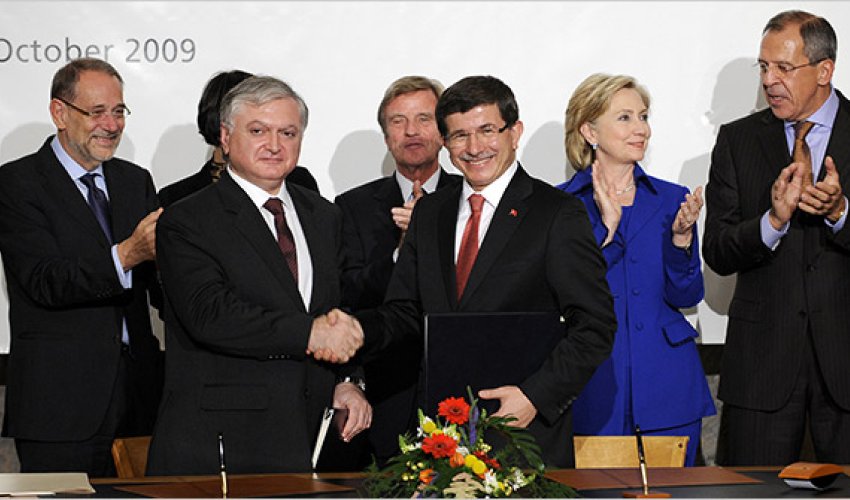
By Kamer Kasim
Although the closed Turkish-Armenian border is just one of the issues in Turkish-Armenian relations, it has time and time again made its appearance on the agenda.
Despite Turkey’s recognition of the independence of Armenia after the disintegration of the Soviet Union, normal diplomatic relations could not be established. Armenia’s state policy regarding genocide allegations and its tentativeness with respect to the Kars Treaty, which draws the Turkish-Armenian border, have created a rift in the two countries’ relations. The Armenian Declaration of Independence states that "The Republic of Armenia stands in support of the task of achieving international recognition of the 1915 Genocide in Ottoman Turkey and Western Armenia.” Here, the term "Western Armenia” refers to territories within modern Turkey.
Despite this, the Turkish-Armenian border remained open until the Armenian forces’ occupation of Kelbecer, which clearly indicated that Armenia had no intention of withdrawing from Azerbaijani territories.
On the contrary, the Armenian forces continued to occupy more ground during the Nagorno-Karabakh Conflict. As a result, Turkey closed its border with Armenia in order to demonstrate its support for Azerbaijan. After a ceasefire to the conflict was arranged, Turkey has used diplomatic channels to pursue a permanent solution. However, the Nagorno-Karabakh conflict has not been resolved and violations to the ceasefire have increased the risk of war.
Why is there pressure to open the border coming from the US and the EU?
The US and the EU are not comfortable with Armenia’s policy to maintain and further strategic ties with Russia. Indeed, Armenia has become a country in which Russia has stationed military installments without much domestic objection. Even the Armenian diaspora in the US is not pleased with the state of Armenia’s relations with Russia.
Some circles in the US and the EU have maintained that if the Turkish-Armenian border were to open, then Armenia would integrate with the West via Turkey and come to depend less on Russia. The main deficiency of this argument is that it ignores the weakness of the Armenian economy. The Armenian economy is in such a state that even if the Turkish-Armenian border were to open, the trade volume between the two countries would not experience a substantial rise and Russian domination of the economic sphere in Armenia would persist. Additionally, Armenia’s membership in the Eurasian Economic Union would actually indicate that Russian domination over Armenia would be extended into the foreseeable future.
There is also the argument that if Turkey opens the border with Armenia, the pressure coming from third countries for Turkey to concede to genocide allegations would lessen. The administrations of some countries which do not want their relations with Turkey to be upset by the allegations of genocide are particularly prone to employ this argument. Nonetheless, this argument lacks substance as the Armenian diaspora would continue its activities regarding genocide allegations independent from the state of Turkey-Armenia relations.
Turkey and Armenia have signed protocols with the encouragement of various third countries who hoped for a resultant normalization of Turkish-Armenian relations. Upon ratification of these protocols the Turkish-Armenian border would be opened within two months. Regarding the issue of genocide allegations, which is also one of the obstacles to the improvement of the two countries’ bilateral relations, a sub-commission would be established in order to provide an impartial scientific examination of the historical records.
While Azerbaijan has voiced disappointment that the protocols give no mention of the Nagorno-Karabakh problem, the Armenian diaspora has also criticized the protocols as well as the Armenian administration due to the article about the establishment of a historical sub-commission.
When it comes to the ratification of the protocols in Armenia, the approval of the Armenian Constitutional Court is needed. While the Armenian Constitutional Court reviewed the compatibility of the protocols with the Armenian Constitution, it interpreted the protocols in a way that actually clashed with the spirit of the protocols and thus created a great debate about the meaning of the protocol’s articles.
For example, the Armenian Constitutional Court stated that the provisions of the protocols could not be interpreted or applied in the legislative process, and that their implications for the Republic of Armenia as well as its interstate relations actually contradicted provisions of the preamble to the Constitution of the Republic of Armenia and the requirements of Paragraph 11 of the Declaration of Independence of Armenia. Since the Armenian Declaration of Independence refers to the genocide allegations and mentions "Western Armenia”, general questions have been raised about the protocols’ provisions regarding territorial integrity and the formation of the historical sub-commission.
Turkey expects the protocols to allow discussion of the genocide allegations on a scientific platform as well as to facilitate Armenia’s open recognition of the borders as they currently stand. If these expectations are not met, the protocols would be meaningless for Turkey, as it would be irrational for Turkey to open the border, which was initially closed due to the Armenian occupation of Azerbaijani territories, without a solution to the Nagorno-Karabakh issue.
Why Turkey shouldn’t open the Border without a Solution to the Nagorno-Karabakh Conflict
Turkey should not open the border without a solution to the issue that provoked its closure in the first place. Turkey-Azerbaijan relations would be damaged if Turkey acts otherwise. Besides, Turkey’s image would be negatively affected if it did not show decisive support to this strategic partner.
To open the border without a solution to the Nagorno-Karabakh problem would be baseless according to both ethical and realistic rationales. From an ethical point of view, it would be problematic to open the border seeing that Armenia has continued its occupation of Azerbaijani territories while showing no intention to withdraw. Moreover, there are UN resolutions that call for the end of Armenian occupation and respect for Azerbaijan’s internationally recognized borders and territorial integrity. This is not to mention the massacres of Azerbaijani populations that have taken place during the Nagorno-Karabakh Conflict.
From a realistic point of view, the greater importance of Azerbaijan, as compared to that of Armenia, with respect to Turkey’s regional role necessitates that it not open the Armenian border without a solution to the Nagorno-Karabakh problem. Azerbaijan has a GDP of 103 billion US Dollars and has even invested more than 5 billion US Dollars in one single project in Turkey (Star Refinery).
There are also crucial energy lines between the two countries, namely, the Baku-Tbilisi-Ceyhan oil pipeline and the Baku-Tbilisi-Erzurum natural gas pipeline. Moreover, railway lines between the two countries are under construction and the contract for TANAP (the Trans-Anatolian Natural Gas Pipeline), which envisages an annual transportation capacity of 16 billion cubic meters in 2020 and 31 billion cubic meters in 2026, has been signed. On the other hand, natural resource-poor Armenia, which hosts a small GDP of 20 billion US Dollars and relies heavily on Russia, does not hold much economic potential for Turkey.
The arguments and data that have been presented by the circles who actively lobbied for the normalization of Turkish-Armenian relations, and particularly for the opening of the border, did not take into account Armenia’s economic realities. The argument that the Nagorno-Karabakh problem is independent from Turkish-Armenian relations neglects the fact that Turkey closed its border with Armenia due to the Nagorno-Karabakh Conflict in the first place.
Some Western countries which offered financial support to Armenia based upon the expectation that it would grow closer to the West, all the while ignoring Armenia’s occupation of Azerbaijani territories and violation of its internationally recognized borders, are now disappointed with Armenia’s membership to the Eurasian Economic Union. Taxpayers in these Western countries should question the financial assistance that was given to Armenia knowing the fact that it had shown no indication of changing its foreign policy.
The solution to the Nagorno-Karabakh problem is not only the prime condition for sustainable peace and stability in the Caucasus, but also for the normalization of Turkish-Armenian relations.
(eurasiareview.com)
ANN.Az
Similar news
Similar news

























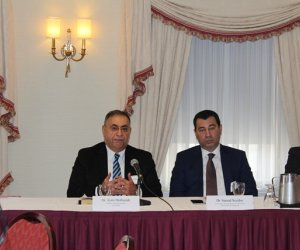


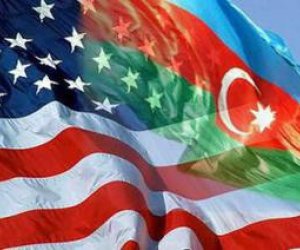
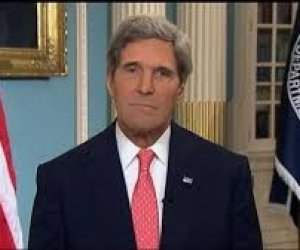


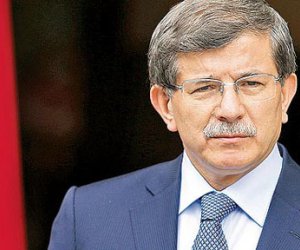



 Photo
Photo 



 Video
Video 

